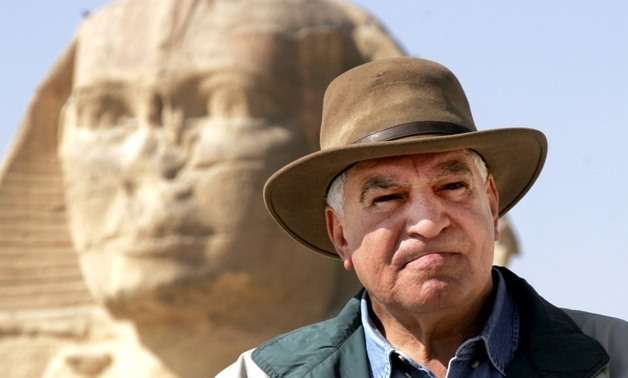The interest in the antiquities of the Kingdom of Saudi Arabia is no longer limited only to the antiquities of pre-Islamic times or the era of early Islam, but has also been extended - through many joint foreign and Saudi missions - to include the antiquities of prehistoric times. The studies of this period is very important because these studies search for the steps of the earliest human on the Arabian Peninsula to know through the results what happened during this period that was not studied before.
Many recent archaeological discoveries in the Kingdom have indicated that the steps of the earliest human date back to thousands of years, and that the Arabian Peninsula was full of greenery and water during prehistoric times. Scientists are currently studying many of the antiquities that have been discovered and date back to an era that was not known before, which is the Holocene era.
[caption id="attachment_245908" align="aligncenter" width="628"] zahi hawass[/caption]
zahi hawass[/caption]
Studies have proven that man in this period began to shift from a primitive life to a stable life, and scientists called the man of this age the name of the wise man, and fossilized bones were found for the mammoth, but finding such bones indicates that the Arabian Peninsula was an area with a humid climate and climatic conditions suitable for prehistoric mammoths to live in. We also know another area in Wadi Ad Dawasir Governorate, especially the site of the archaeological headquarters where species of animals dating back to the Neolithic periods were found. Antiquities dating back to the Middle Stone Age were also found in this site.
Finally, other antiquities were found at the Safaqa archaeological site in Al Duwadimi Governorate in Riyadh, in which many missions carried out archaeological surveys, that revealed the presence of signs for the Acholi groups about 200,000 years ago. It is evidence of the most recent Acheulean sites in southwest Asia. The results of the archaeological survey and the research conducted on archaeological discoveries revealed the persity of human behavior in the ancient world, while ancestors tried to resist nature's obstacles during their migration from Africa.






